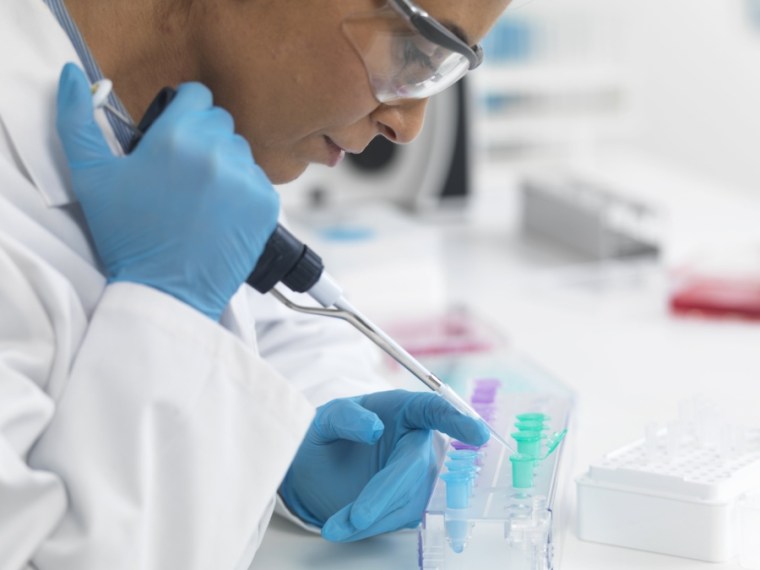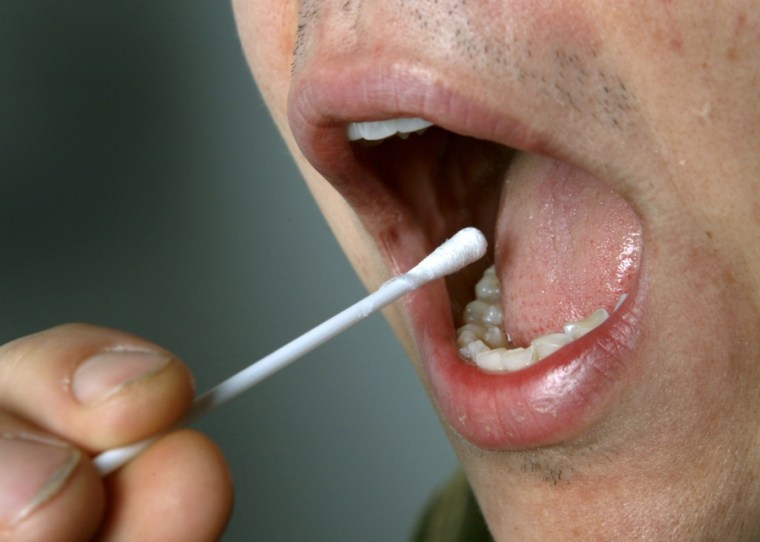An over-the-counter DNA kit might seem like a nice way to learn more about your ancestry, but what if instead of fun insight into your heritage, your test tells you you’re at risk from a terrible disease?
There has been a rise in people wanting referrals to NHS genetic counsellors after at-home DNA testing kits have given them medical results they didn’t expect, or don’t understand, as testing companies increasingly branch out into offering analysis of family health history.
For example, customers at the testing company 23andMe can opt only to have an ancestry test, which won’t include any health information – but for £149 the company also offers a Health + Ancestry service which includes “health predisposition reports”.
Genetic counsellor Sara Levene, who is also chair of the Association of Genetic Nurses and Counsellors (AGNC), tells i that as the DNA kit industry booms, the NHS can’t cope with the fallout. “People do over-the-counter DNA tests and are then referred because they have been troubled by the medical information they got back,” she says.

“In the early days, this was kind of accepted and they were being seen, but as the numbers went up the NHS understandably couldn’t see all the people who have done the tests, especially as a lot of these tests do have pretty low accuracy when they’re not from a clinically accredited lab, so sometimes the NHS is having to start over with the person and go through their whole medical history, when actually it’s not a validated test.
“As the number of people seeking referrals rose, it became more onerous on various genetic departments in the NHS setting, and the NHS just can’t pick up all those pieces any more.”
The issue is that home genetic tests, otherwise known as direct-to-consumer tests (DTC), often take only a superficial look at particular genes – they are not designed for diagnosing genetic conditions.
The British Society for Genetic Medicine has published guidelines stating: “For certain types of DTC results, there is a very high chance of false positive or false negative results.” Ms Levene says this is one of the major problems, as it is hugely costly and time-consuming for the NHS to spend time checking or refuting the findings of potentially unreliable at-home DNA kits.
More from Lifestyle
“We know that false negatives and false positives happen,” says Ms Levene, “and they can be really damaging. Because a [false negative] test is effectively telling someone that they are not at risk when actually they might be, and they’ve not had a test that has fully excluded that risk. And then false positives suggest that someone needs to take action on their health, which could be something big, and it isn’t actually warranted.”
In the USA, The MIT Technology Review estimates that by the start of 2019, more than 26 million consumers may have taken over-the-counter DNA tests. In the UK, research by YouGov estimated 4.7 million Britons had used a DNA testing service.
As well as being fascinated by family history, the British Medical Journal has found that “people might be drawn to DTC genetic testing in the hope that it will provide clear cut information about their future health. This idea may be reinforced by advertising. For example, a recent analysis of advertising of DTC genetic tests noted that some tests were presented as potentially empowering, with the decision to take them portrayed as responsible – a way that people can take an active role in managing their own health.”
However, this isn’t always how it plays out in reality. Ms Levene wants people considering taking a genetic test to be aware that if they get a confusing or stressful result, they might find it hard to access support on the NHS.
The AGNC advises GPs “to be cautious about commenting on the results of DTC genetic tests because these are often low quality…” Doctors are instead advised to talk to someone about their family history and individual personal health, and to leave the at-home genetic test out of it.

When the NHS was asked about this, a spokesperson responded: “The NHS doesn’t routinely provide genetic tests for people just because they want one or think they need one. It relies on clinicians’ judgements and assessments of a patient’s actual conditions and various other variables such as family history and so on.”
“When somebody goes to their GP saying, I’ve got this result, and I’m really worried and I need help,” says Ms Levene, “the advice that we give now to GPs is to go back to the beginning and do a health assessment as they ordinarily would, irrespective of that over-the-counter DNA result, because we can’t rely on one DNA result.
“If a person’s family health history points to genuine risks, they should be referred into the right NHS service that they would be anyway.” If someone has concerning symptoms or valid concerns about family health history, they would be seen and perhaps at some point that test would be repeated, but, as Ms Levene says, this would be “in a proper, validated clinical lab”.
One of the examples of potentially stressful or misleading DNA results that the AGNC points to in its guidance is testing to assess the risk of Alzheimer’s disease.
“Some companies sell tests that look at a genetic risk factor for developing Alzheimer’s disease (the APOE4 gene). People might be attracted to testing because they would find it reassuring to hear that they don’t have the genetic risk factor. However, some people will be told (perhaps unexpectedly) that they do have the genetic risk factor.
“Sometimes people regret having had the test, and worry every time they forget something that it’s because they’re developing dementia. There are many people with the genetic risk factor who never develop dementia (and others who do not have the genetic risk factor who do [go on to] develop it). NHS care and lifestyle recommendations wouldn’t change based on the results of the test, so it’s important to think through whether having the test would help you or not.”
While most genetic counsellors work within the NHS there are a few who work privately. If someone gets a genetic result from an at-home kit and is keen to talk to a health professional, they might be able to find someone they can pay. However, it is worth bearing in mind that this process might involve paying for extra genetic tests run by an accredited laboratory to check the results.
Ms Levene believes that the DTC DNA testing companies should be making sure they have genetic counsellors on hand for their consumers. “If a lab company is trying to offer a responsible service,” she says, “they should be employing a genetic counsellor, even one day a week.
“I’d argue you shouldn’t do genetic testing without at least access to a genetic counsellor. That doesn’t mean that every patient who has every kind of genetic test must see a counsellor before or after or both, it means that you’ve got to have the access for when it’s needed. We have to actually hold the companies accountable because if they want to offer the DNA service and sell it commercially as a benefit to someone’s life, that is not a full service unless they can provide support for the patients who are using it.”
Myheritage and 23andMe are a few of the major players in genetic kits (MyHeritage provides genetic counselling in the US). The world’s consumer genetic testing market was worth $70m (£52m) in 2015 and surpassed $1bn in 2019. This is expected to rise by more than 12 per cent from now until 2028.
Since DNA kits became increasingly popular, there have been cases of wonderful family discoveries but also heart-wrenching ones. For this reason, as well as the medical concern it can cause, Ms Levene advises consumers to consider carefully before doing a test, and to avoid giving a test to a loved one for Christmas or a Birthday.
“I’d say get them a bottle of wine instead,” says Ms Levene. “Genetic kits are not a present. You can find some information sometimes which is entertaining and curious, and there’s no harm. But buried within that test there may be some other things that really could sound quite serious.
“For the person who’s purchasing the test, they may think that wouldn’t bother them, but that doesn’t mean that the person they’re giving the test to would feel the same way. It certainly has backfired on people, and there’s more than a small chance of it backfiring on you.”
However, if someone has evaluated the risks and wants to do a test, how should they go about it? “People who have genuine interest in finding these things out about themselves, should go and do research on what’s the reliable test from a reliable company that provides a good service,” Ms Levene says.
Ms Levene won’t advocate certain companies over others, but she says the key sign to look out for is that the company can link to published scientific literature about the high quality of its testing. “If there doesn’t seem to be any scientific data, that’s a red flag,” says Ms Levene.
“Check whether a company has full access to genetic counselling, as that is worthwhile. They also should think about whether going to one of these companies is the best way of doing it in the first place, or [whether they should instead] go to a private clinic, which does have a genetic counsellor available. Those are the kinds of things to think about before actually going ahead.”


Maurice Saatchi: I used to adore capitalism – then I had lunch with Margaret Thatcher